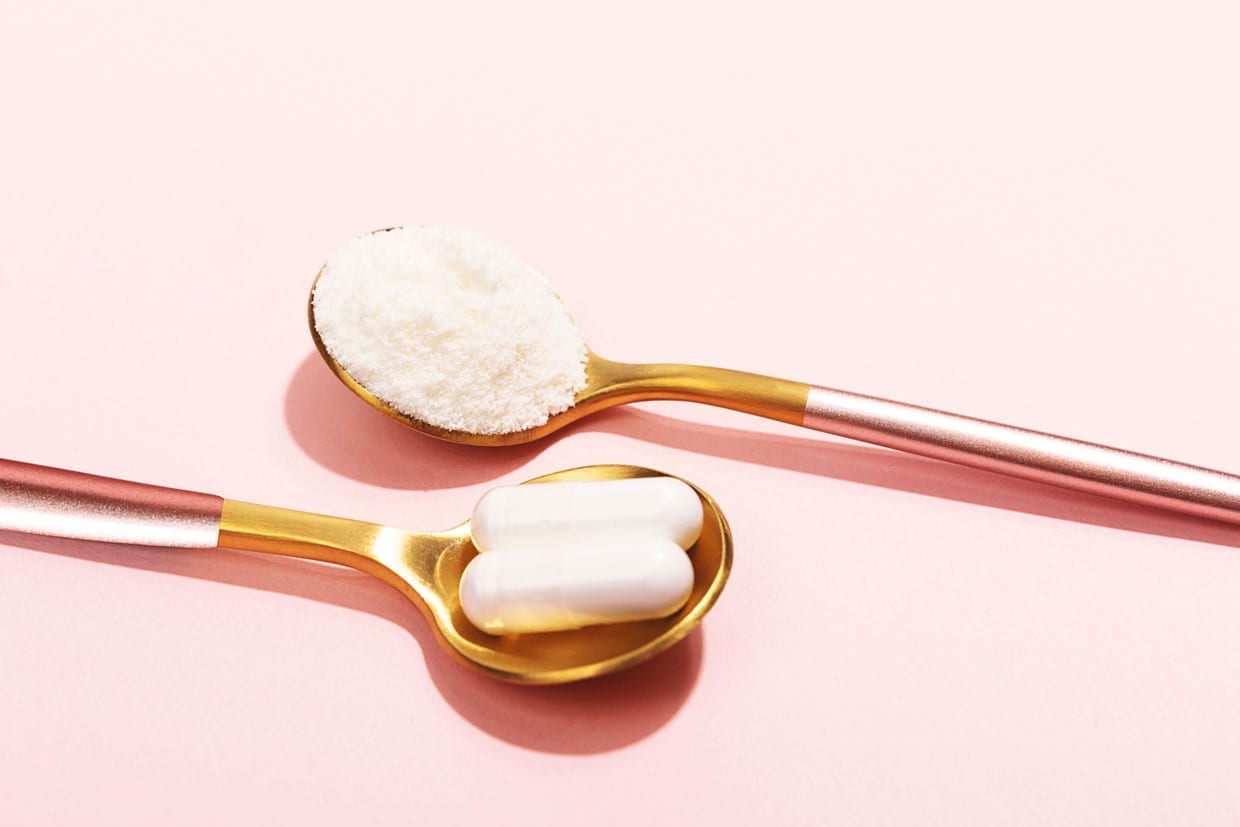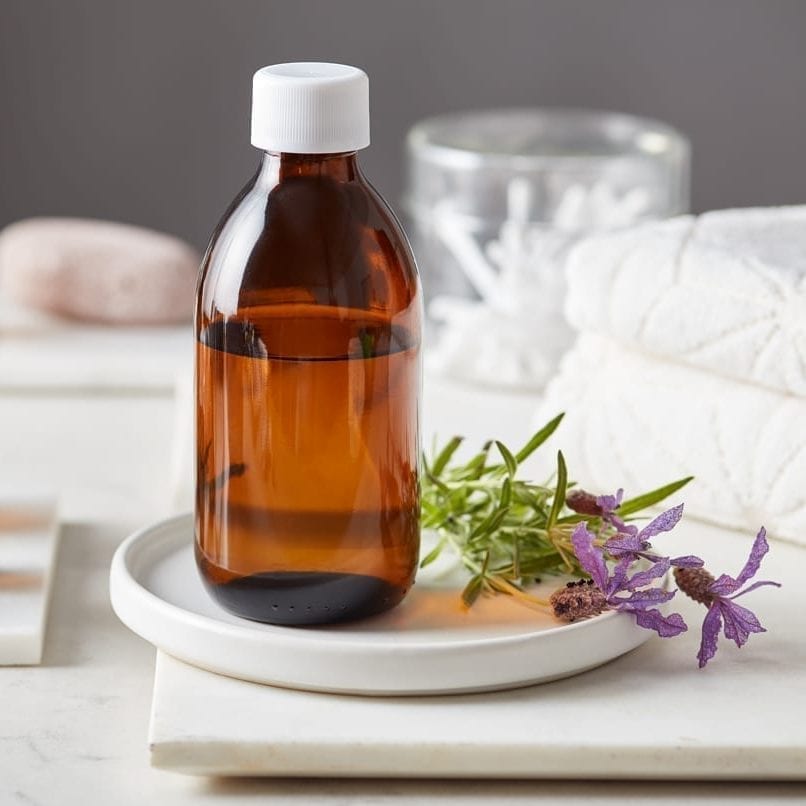The mind-body connection is not just feel-good BS spouted in your yoga class, science is increasingly discovering new ways in which mental and physical health are closely intertwined. In some ways, this is pretty obvious: Meditating — physically creating stillness and slowing your breathing — is bound to lower your stress levels.
But other examples of the mind-body connection are a little more out there: as a connection between your gut and your brain.
Gut Feelings
First things first: What exactly is your gut?
In scientist-speak, “gut” refers to the microbiome — aka the ecosystem of bacteria, fungi, yeasts and other microorganisms that live in your small and large in intestines. (These microbiotas are found all over your body, including your skin, but the largest colony lives in your gut.)
There are trillions of these little “bugs,” which sounds a little gross, but they are actually super important to your health. “They help us with digestion and producing essential vitamins and chemicals,” says Niket Sonpal, M.D., a board-certified gastroenterologist in New York. “For example, we wouldn’t be able to get enough vitamin K in our diet”—which plays a role in everything from blood clotting, to bone health, to regulating blood calcium levels —“if it wasn’t for bacteria that live in our gut.”

Everyone’s microbiome is unique — it is influenced by genetics and also factors like where you live and what types of foods you eat. (Probiotics are key but more on those later). That means there is no one-size-fits-all definition of a “healthy” microbiome but when your individual intestinal ecosystem gets thrown out of balance — aka overrun with “bad” bacteria, which is called “dysbiosis”— it can cause problems. Cue bloating, gas and potentially more chronic issues like IBS. “Things like antibiotics, illnesses, stress, our diets — all can change the microbiome,” Sonpal says. “The thinking is that if those microbiome bugs can create good things, is it possible they can create bad things? Theoretically yes. This is the new frontier of medicine.”
The Gut-Brain Axis
Nowadays, it is pretty well established that there really is a connection between your brain and your gut, which is where the terms “gut feeling” and “gut decision” get their origins, says Sonpal. There is still a lot of scientists have yet to understand about how exactly the microbiome works and interacts with the brain but what they have learned is convincing enough to start calling the gut the “second brain.”
Why? Your gut is literally a second home to neurons — specialized cells that send signals telling your body how to behave. “The entire gut has a great deal of nerve tissue — it shares the same neurons as the brain,” Sonpal says. Here is where the microbiome comes in: “What we’ve learned is that some of these good and bad bacteria produce not just vitamins and some chemicals that might make us feel bloated, but they can also produce neurotransmitters” — chemicals that flow through our central nervous system from nerve to nerve and affect the brain, he explains. These signals create an information highway that links your GI tract and your central nervous system, called the “gut-brain axis.”
If we can take a probiotic to boost good bugs in our gut that help with digestion, why not a strain that helps with stress?
Researchers are still mapping this out, but the vagus nerve — one of the body’s “king nerves,” Sonpal says — is a key part of transmitting signals from your brain to your gut and from your gut back to your brain. The vagus nerve is a big deal in the parasympathetic nervous system, the network that controls everything from your mood to your heart rate, to — you guessed it — digestion. According to a study published in the journal Psychiatry in 2018, treatments that target the vagus nerve have the potential to treat everything from psychiatric disorders to GI issues like IBS.
The main question on scientists’ minds is just how much the gut-brain axis might play a role in mental health issues like depression and anxiety. “Could these things be driven by what’s in our gut? When you think about it from a theoretical standpoint, the answer is yes,” says Sonpal. Animal studies back this up. A 2017 look into the gut microbiomes of pigs found that higher levels of healthy bacteria in the microbiome was linked to lower levels of cortisol—the hormone behind stress. Another study in mice found that the microbiome plays a role in regulating key markers associated with anxiety.
Psychobiotics: The New Mental Health Treatments?
OK, so your food and your mood are connected — what exactly does that mean for your health?
The more scientists learn about the gut-brain connection, the more promising an idea: One day, we might pop a probiotic to treat depression. “I think in our lifetime there will be a little probiotic pill that says ‘take this once a day for anxiety,’” says Sonpal.
These treatments are called “psychobiotics”—essentially prebiotics and probiotics that might be used specifically to boost mental health. “The theory of it is that if you take these psychobiotics, they will alter the gut microbiome, producing a larger diversity of bugs in the gut that will then produce chemicals that will actually lower things like the stress hormone cortisol or boost the body’s natural levels of serotonin,” Sonpal explains.
The logic is pretty simple: If we can take a probiotic to boost good bugs in our gut that help with digestion, why not a strain that helps with stress? Take a probiotic strain called Bifidobacterium longum, for example. In combination with lactobacilli, (one of the most common probiotic strains found in everything from yogurt to kombucha) it is linked to lowered stress and improved memory.
This could mean big things for the future of mental health treatments. “The goal is to try to holistically change people’s chemical interface to improve mental health,” Sonpal says. A small 2016 study recruited volunteers to take either a placebo powder or a probiotic (specifically B. longum) every morning for a month. The probiotic group reported lower levels of anxiety and showed improved memory.
This does not mean upping your yogurt intake will cure depression or replace proven methods of treating anxiety — the science on psychobiotics is still way too new. But eating a diet rich in probiotics certainly will not hurt in making your gut — and potentially your brain — a little happier.
We only recommend products we have independently researched, tested, and loved. If you purchase a product found through our links, Sunday Edit may earn an affiliate commission.







